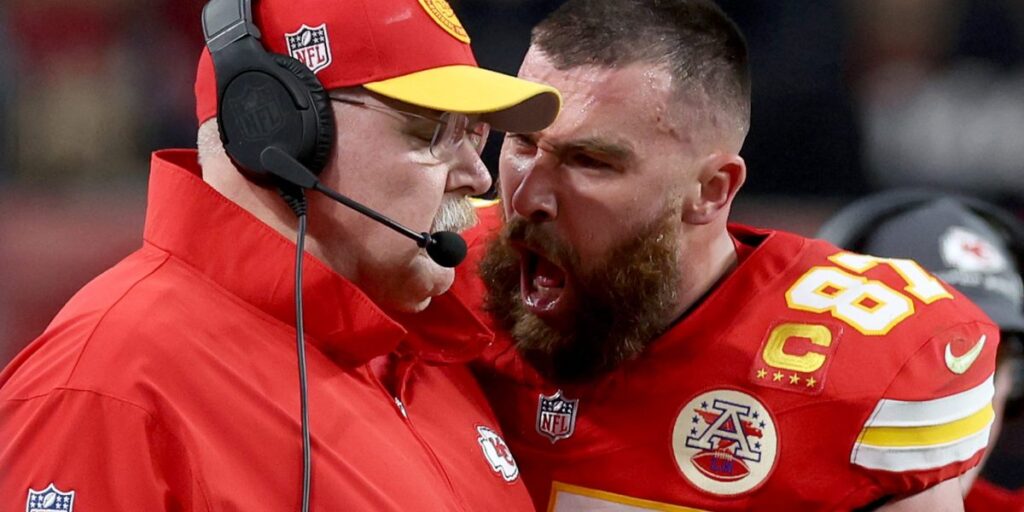
The NFL is rarely a loser on the field, but a lopsided blowout in antitrust litigation could change how the world’s richest sports league generates and distributes billions of dollars in revenue each year.
A Los Angeles jury on Thursday sided with fans who claim the league conspired with DirecTV to raise subscription prices for games broadcast in teams’ home markets. The $4.7 billion in damages could be tripled under federal law.
This doesn’t mean it’s game over.
The judge may significantly reduce the verdict or even overturn it entirely, ruling in the NFL’s favor. He disagreed with the fans’ arguments during the trial and dismissed the case in 2019, which later evolved into a class-action lawsuit. Post-trial motions are scheduled for July 31.
“This is a very serious problem, but there’s still a long way to go,” said media consultant and former Fox Sports executive Patrick Crakes, who helped the network negotiate with the NFL Negotiated the deal. “In terms of the big picture and the NFL’s place in the media landscape and its value, that’s not going to stop them. They’re going to keep moving forward.
If the verdict stands, the NFL said it would appeal all the way to the Supreme Court, extending a case that dates back to 2015. They also buy off-market games without participating in competitions and charge high prices for them. In other words, as a fan, you must buy rights to every game on Sunday, not just when your team plays.
The jury decided it was unfair after less than a day of deliberations. The ruling is a shock to the way sports are delivered to consumers and a major blow to the NFL, which is used to having the Midas touch. Although it will appeal, the league must plan for the potential costs of failure.
It’s hard to know how much cash the NFL has. As a private company, it does not share its financials. Back in 2010, NFL Commissioner Roger Goodell set a goal of $25 billion in revenue by 2027.
One estimate of NFL revenue currently puts it at about $12 billion, according to the annual report of the Green Bay Packers, the only NFL team to publish its financials. Thirty-two teams receive the same amount from the NFL, with the Packers receiving $374.4 million in 2022, the latest data available.
FIFA, the world soccer organization, is the only sports organization that competes with the NFL in terms of money, at least during the World Cup. It earned more than $6 billion from the 2022 World Cup in Qatar.
If FIFA has that much cash, you’d think the NFL would be able to at least save the money and pay the judgment, but it’ll take some time. The same goes for appeals.
power shift
The next issue — assuming the verdict isn’t overturned — could be the shift in power between the NFL and its teams.
The NFL keeps members happy and everyone rich by signing massive television deals. The NFL will receive $110 billion from an 11-year television deal signed in 2021.
The NFL has always been special. In 1961, Congress passed the Sports Broadcasting Act after a U.S. District Court ruled that the NFL’s concentration of power in its deal with CBS violated antitrust rules.
The bill allows the NFL to bundle the rights of all teams to make the league financially viable. But the bill focuses on broadcast deals, while the Mucky Duck lawsuit focuses on whether the NFL violated antitrust laws by offering Sunday ticket packages through satellite provider DirecTV.
If the ruling stands, teams will have the opportunity to sell their local rights and out-of-market games through cable TV and even streaming services. The temptation could be greater if the NFL tried to pass the cost of fines onto each team – with potential losses ranging from $150 million to $450 million.
“Ultimately, it’s a free market, and we hope it creates more opportunities for people to watch NFL products,” said Sarah Hartley, a sports law instructor at the University of Virginia School of Law and a partner at Bryan Cave Leighton. Opportunity.” Pesner. But she also warned that the legal process is far from over.
Youtube
Starting in 2023, YouTube will replace DirecTV as the home of Sunday Ticket. It pays the NFL $2 billion a year and charges customers $349. While the case doesn’t involve YouTube, it’s hard to tell whether the streaming platform would be better off giving more money to teams with more fans and viewers. It’s also hard to know whether the team owners think they can get a better deal on their own.
Dallas Cowboys owner Jerry Jones acknowledged as much during the trial. “I believe I’m going to make more money than the Bengals,” he said from the stands. Got some laughs.
Jones is arguably the architect of the NFL, which is funded by television revenue. Back in 1992, CBS and NBC were actually losing money on NFL broadcasts. NFL broadcast commission wants to offer networks millions of dollars in kickbacks. Jones refused, and a new network called Fox was brought in and a bidding war began.
When Jones fought back against the kickbacks, he became the new owner after buying the Cowboys in 1989 for $140 million. Now worth billions. Now there are new owners looking to make their own mark.

